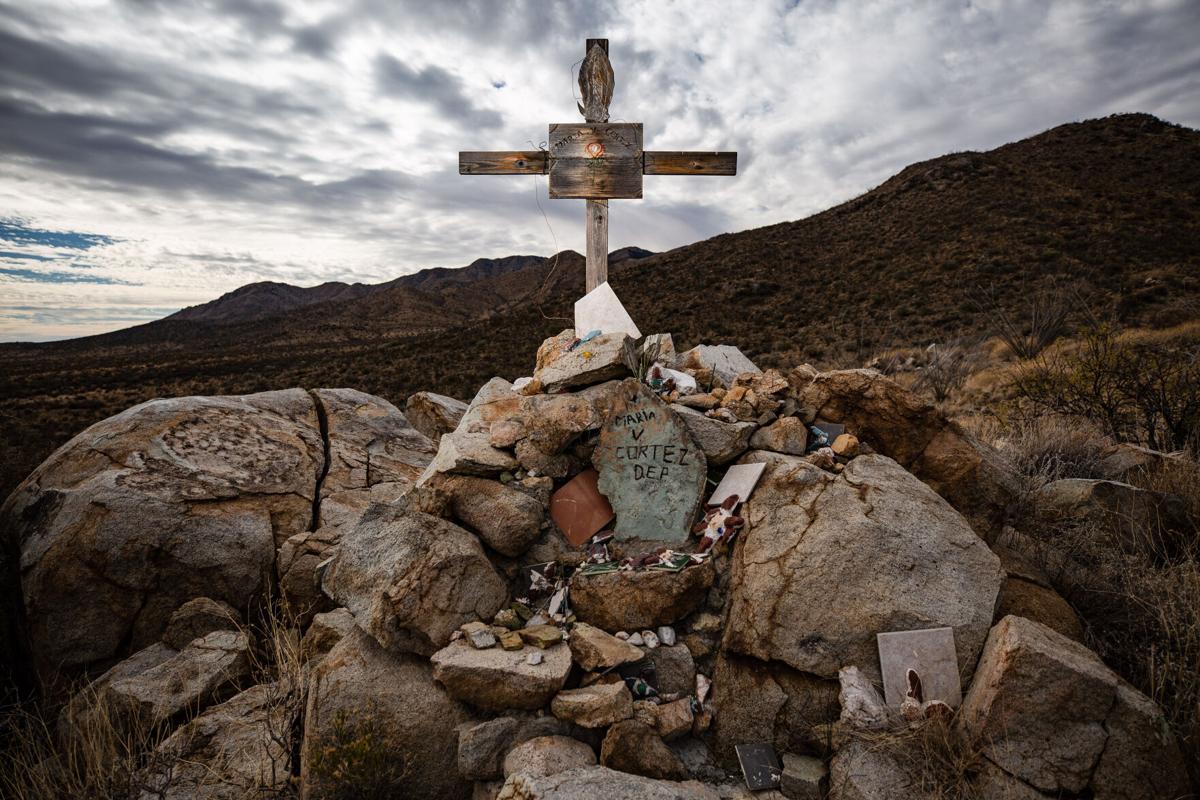The remains of 114 migrants have been found in the southern Arizona desert so far this year, including 15 sets of human remains reported to the Pima County Medical Examiners’ Office in August, and 37 in July, according to data compiled by nonprofit Humane Borders.
Nine of the bodies reported last month had been dead less than a day when they were found, and two died within a week of their discovery, the medical examiners’ office said.
Advocates worry that restrictions on access to asylum imposed by the Biden administration will contribute to more deaths from exposure and dehydration, as migrants seek to evade the border agents and push deeper into the desert, instead of surrendering to agents and requesting asylum.
“That’s the reality,” said family physician Dr. Belen Ramirez, of global humanitarian-aid nonprofit Doctors Without Borders. Her medical team recently spent July and August at the Arizona-Mexico border, rendering care to migrants and taking stock of what she calls the “neglected humanitarian crisis” there.
After the nonprofit’s first visit to Arizona’s southern border in April, Ramirez’ team concluded a dire medical situation exists at a remote area of the border, east of Sásabe.
Since last fall, large numbers of asylum seekers had been crossing into Arizona and often waiting for hours, or in some cases overnight, before finding border agents they could surrender to.
More recently, migrants whom Ramirez encountered said they wanted to turn themselves in and “do it the right way,” but if that was impossible, they’d try to cross again however they could, she said.
Meanwhile, organized crime groups are charging ever-higher prices to smuggle people across the border, she said.
“The harder we make it, the more profitable it is for the cartel,” Ramirez said.
Last week while providing aid at the border wall, about 20 miles east of Sásabe, volunteer Laurel Grindy of the Green Valley Samaritans said she met a Mexican mother with three children, the youngest about ages 8 and 10, who planned to try to evade agents by crossing through the desert.
Grindy said she warned the mother of the dangers in this remote area of the borderlands — including extreme heat, lack of shade and rattlesnakes — to no avail.
“They were going to travel through the desert. She was committed to that,” she said.
Mexican migrants have made up the bulk of those rapidly deported under Biden’s asylum restrictions, as they’re easiest to return to their home country, advocates in Nogales, Sonora have said.
“I think many asylum seekers are aware of that,” Grindy said.
Volunteers have been noticing an increase in arrivals of unaccompanied minors, who are still eligible for humanitarian protection under exceptions to Biden’s asylum restrictions.
“There was a 5-year-old a couple weeks ago, with just a little note in his hand to give to the policia,” Grindy said.
The border road in this stretch of the border is extremely steep, and much of the dirt cover has eroded away after monsoon season, Grindy said.
These days “some of those very steep hills are just rubble,” she said. “It’s really rough territory to walk and it is exposed. There is no shade and there is no water,” other than new water stations recently set up by Humane Borders in this area at the end of the border wall east of Sásabe.
Biden’s asylum restrictions have likely contributed to the steep reduction in migrant arrivals between official ports of entry on the U.S.-Mexico border since the new policy went into effect in June.
Last month U.S. Customs and Border Protection reported that border agents arrested 11,722 people in the Tucson sector in July, a 48% drop from June. Border-wide, migrant arrests between ports of entry were at the lowest levels since 2020, CBP said.
Even under the Biden administration’s new restrictions, migrants who proactively express fear of return to their country are supposed to be referred to a credible-fear interview. But migrants and advocates report that agents are widely ignoring that protection under Biden’s new rules, and quickly deporting migrants whether or not they express fear.
Ramirez of Doctors Without Borders said an under-reported concern at the border is the mental health of volunteers, and the risk of primary or secondary trauma from continual exposure to tragic situations, she said.
Volunteers not only have to deal with the physical toll of traveling rough roads to remote areas of the border and spending hours exposed to the elements; they also face intimidation and harassment from vigilantes, and tension with the Border Patrol, she said.
“Volunteers are still looking for that humanitarian space that is recognized, not just tolerated” by law enforcement, Ramirez said.





